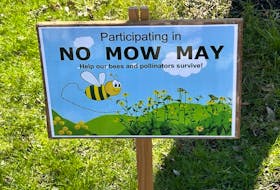A few weeks ago, Elon Musk proposed that humans prioritise the colonisation of the planet Mars, a 500-day journey away, so our species can survive in the event of runaway global warming or a third world war on Earth. He said, “It’s important to get a self-sustaining base on Mars far enough away from Earth that, in the event of a nuclear war, it’s more likely to survive than a moon base.” …which is just some three days journey away.
Musk is no fanatical blowhard but the genius founder of Tesla, the largest manufacturer of all-electric automobiles on our planet, and SpaceX, the maker of the large unmanned rockets that not only carry supplies to the international space station orbiting our planet, but return themselves to earth with picture-perfect vertical landings, so they can be reused on other missions at much reduced costs than single-use vehicles.
SpaceX intends to establish a Mars base in the 2020s, using this fully reusable launch system shuttling between Earth and Mars. Two robotic cargo flights are planned to be launched just four years from now to deliver a massive array of solar panels, mining equipment, as well as surface vehicles, and food and life support infrastructure.
So, does Musk’s belief in the need to colonise Mars signal the end of the line for our species, at least on Earth?
Our species, homo sapiens, the Latin noun “homo” meaning human being, with “sapiens” meaning discerning, wise and sensible, has a long history that goes back to its African roots over 300,000 years ago.
It was preceded by homo erectus, "upright man”, and before that homo habilis “handy man”, both of which disappeared in pre-history. Much later, homo neanderthalensis, more commonly known as the Neanderthal species, occasionally co-habited with those of our species that made its way to Europe, and we still carry traces of their DNA in our genes. But they also died away just 40,000 years ago from unknown causes.
My point is that compared to our other “homo” cousins we have had a pretty good run at life on earth, so we should be too upset if it all ends in the next century or so. And, whether runaway global warming or global nuclear conflicts put paid to us, some would say that we have only ourselves to blame.
It would also not be the first example of cataclysmic events on earth wiping out thousands of species at one time.
Around 250 million years ago our planet experienced the “Great Dying” caused by a runaway greenhouse gas effect attributed to massive volcanic activity across the globe. It was the Earth's most severe known extinction event, with the fossil record showing that up to 95% of all marine species and 70% of terrestrial vertebrate species become extinct. It took over 10 million years for the Earth to recover from this disaster, but fortunately some of our predecessor species managed to survive through this period.
Some would say that the “golden age” of homo sapiens on earth peaked centuries ago. We created the first civilizations around six thousand years ago with early laws from the Romans to govern our behaviour coming later, followed by the first truly democratic parliamentary governments in Europe.
Our civilisation’s many cultural and artistic accomplishments by the likes of Mozart, Bach, Beethoven, Michelangelo, Raphael, Leonardo, Shakespeare and many others, have rarely been equalled; and our scientific achievements owe much to Isaac Newton, Darwin and Einstein, with only Stephen Hawking from recent times deserving to be mentioned in the same breath.
Unfortunately, we have few examples of recent intellectual achievements to celebrate, while we surrender great portions of our lives to trivial social media and “entertaining” offerings such as Netflix and Candy Crush.
It also seems that with the decline in the current state of global affairs, this would not be a good time to create a “time capsule” telling future civilisations of our world as it is. Most would see such a record as something of a “downer”, filled with descriptions of moral failings, racial conflicts, religious turmoil, and the emergence of authoritarian leaders who were successful in appealing to people’s baser instincts. Surely another indication that our time was up.
Alan Walter is a retired professional engineer living in Oxford. He was born in Wales and worked in Halifax. He spends much of his time in Oxford, where he operates a small farm. He can be reached at [email protected].

![['Did You Know That with Alan Walter']](https://saltwire.imgix.net/did-you-know-that-with-alan-walter-3009037.jpg?cs=srgb&fit=crop&h=568&w=847&dpr=1&auto=compress%2Cenhance%2Cformat)







